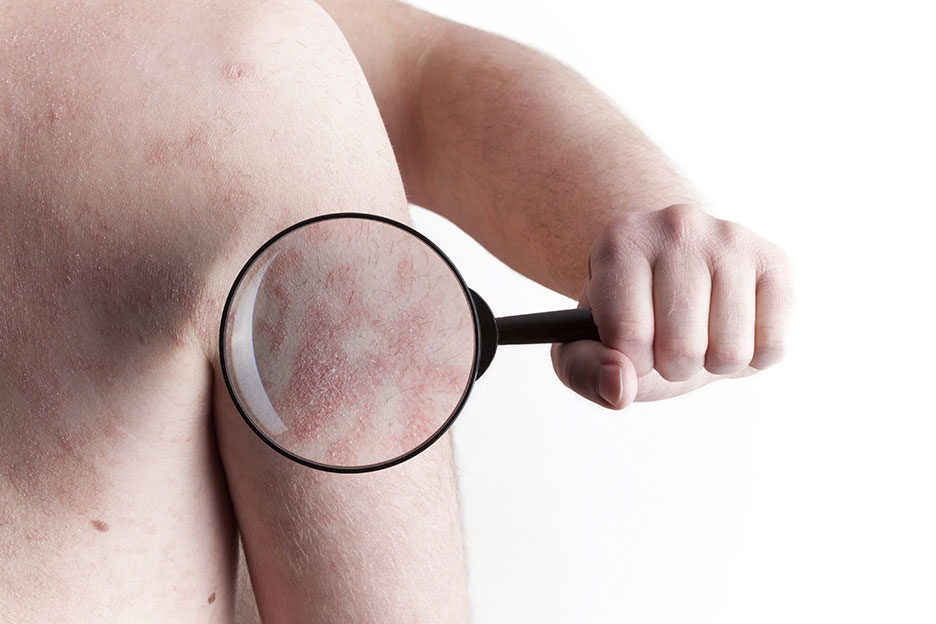Skin diseases are numerous and often highly visible. But did you know that psoriasis involves more than just the skin? Indeed, psoriasis is a complex disease, and knowing more about it will change the way you see those who suffer from it.

What is psoriasis?
Skin can be affected by a multitude of dermatological problems. Some are easy to control, while others are much more complex in nature. Psoriasis is part if the second category, a chronic skin disease that is not contagious. Approximately 2 to 4% of the population suffers from it, and it appears, on average, around the age of 28.
Normally, skin, which is composed of multiple layers of cells, regenerates itself periodically every 28 to 30 days. New layers are then formed underneath and those on the surface peel off, meaning that the layer of dead skin falls off during regular daily activities (ex: rubbing against clothing, washing). However, in individuals suffering from psoriasis, this process is disrupted and much shorter (3 to 5 days). The deeper layer of skin forms too fast compared to the elimination of the surface layer, which leads to thicker skin. And because the cells of surface layers are no longer nourished by blood vessels, they die. This results in the appearance of thick crusts (similar to swelling) that are reddish and dry, and spotted with white scales. These crusts can develop on all body parts, even the scalp, genital organs and nails. They are often located at the same place on each side of the body, and can cause pain and itchiness.
There are several types of psoriasis; they don’t all present themselves the same way, and it is possible for someone to suffer from more than one type at a time. The most common type is plaque psoriasis. Psoriasis can also vary throughout a person’s life, with periods when the condition is more active (flare-ups) and moments of respite when symptoms are better controlled.
Causes and triggers
The exact cause of psoriasis is not well known. Part of the disease is genetic, so having parents who suffer from psoriasis increases your chances of getting it too, but the disease can also appear in people who have no family history of psoriasis. It also occurs when cells of the immune system are imbalanced, which is why psoriasis is known as an inflammatory, auto-immune disease.
In addition, factors linked to lifestyle and environment can also trigger psoriasis or flare-ups. Here are some of them:
- stress;
- cold;
- infections;
- alcohol;
- some medications (ex: stopping a corticosteroid too fast, beta blockers, some anti-inflammatories, antimalarial drugs, lithium, etc.);
- smoking;
- skin injury.
Avoiding these triggers can contribute to preventing a recurrence of the disease.
Complications of psoriasis
Psoriasis is not a life-threatening disease. However, it can increase the risk of developing other diseases:
- heart disease;
- certain skin cancers;
- conditions affecting the joints (ex: rheumatoid arthritis);
- diabetes;
- other auto-immunes diseases (ex: Crohn’s disease);
- depression.
With all of its possible complications, psoriasis is more than a skin-deep disease. Indeed, many patients unfortunately experience low self-esteem, depression, stress and anxiety, and feel powerless over their condition.
To summarize, psoriasis is a disease that is much more complex than it seems. Thankfully, effective treatments can limit its consequences, at least in terms of the skin’s appearance. Your pharmacist can advise you about the choice of treatment and the ways to better live with this disease, so don’t hesitate to ask!
